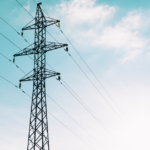Hello Guyanese citizens, in this video, we want to explain the economic dimensions of the resource curse related to what can happen if our oil industry is not managed well, and if we do not use best practices and learn from other countries’ experiences with oil.
The “natural resource curse” or paradox of plenty is evident if one looks at countries with an abundance of resources compared to ones with few natural resources. It puzzles the mind why countries such as Taiwan and Singapore with few natural resources have citizens who are on average significantly much more educated, wealthier and healthier than those of countries with significant amount of natural resource such as Equatorial Guinea and Venezuela.
From an economic perspective, this paradox of plenty can be explained by looking at the currency exchange rates and the wild swings in commodity prices and their impact on infrastructure planning, manufacturing and diversity of our economy.
In Guyana, as of February 2021, there is an estimated 9 billion barrels of oil reserves. Using the current market price of US$62, that would mean the value of that oil is US$558 billion or about US$734,000 for each person in Guyana’s population of 760,000 people. The Government of Guyana is in partnership with foreign oil companies. Thus, it has to share that potential revenue with the foreign oil companies. Even with a share that is comparatively worse that most oil countries in the world, it will still be a significant amount of money for Guyana. It can use that money to improve the lives of its citizens by undertaking initiatives such as building hospitals, constructing bridges and roads, improving education and water supply.
Let’s assume the government’s take of the US$558 billion would be a paltry 14.5% (royalty and profit). That would amount to US$81 billion for Guyana from the 9 billion barrels of oil. That amount is about 40 times the amount of money the government uses to run Guyana every year. Hence, the government can use that new found wealth to rebuild the seawall to prevent Georgetown and other areas from flooding. The government does not have the US$81 billion in hand, but could use it as collateral or security to obtain loans to build the seawall.
But borrowing US$ billions against our oil resource can be a curse. The reason why is that oil prices have fluctuated wildly over the decades which makes prediction of revenues uncertain. There could be interruption to production such as an oil spill or shutdown to fix issues such as flaring. Factors like these can lead to significant loss of income from oil which may cause us to miss our loan payments. During the oil boom-bust cycle of the 1970s and 1980s countries such as Mexico and Nigeria fell in debt crisis because they borrowed against anticipated oil revenues that didn’t materialize.
When a country such as Guyana starts to export large quantities of oil that other countries need, there is demand from foreigners for Guyana dollars to purchase our oil. This would drive up the exchange rate of Guyana which means it would be cheaper to import goods we need such as vaccines and laptops. However, it would have a devasting impact on our other industries such as agriculture and beverages. Guyana exports commodities such as rice and sugar. These commodities are also produced by other countries such as Jamaica and India. Thus, we compete in a global market to sell our goods. But if our exchange rates go up, then our exports such as rice and sugar would not find buyers on the world market because Guyana’s products would be more expensive compared to Jamaican rice and Indian sugar. As a result, our sugar and rice industries would have to lay off large numbers of people. But while immediate layoffs would be painful for those affected, there is a more alarming issue for the entire country. Now, Guyana may be dependent on countries such as Jamaica and India for its sugar and rice to feed its citizens. Therefore, we may have a food dependency on other countries that we didn’t have before.
But this dependency on food wouldn’t be Guyana’s only issue; the resource curse predicts other serious dependency. Let’s take an example of a fictional civil engineer who works at a Government Ministry in Georgetown. He also has a part-time research job teaching at a university campus in Georgetown. He earns enough income to support his family. But because of the higher pay in the oil industry, he decides to work for an oil company analyzing oil well data to determine which wells may contain light sweet crude. This analysis required him to be retrained for a few months. Now, because of climate change, renewable energy such as hydro, wind, and solar, may significantly impact the demand for oil in the near future. Now, if oil demand significantly slows down in about 10 years, the civil engineer may be out of his oil well analysis job. But he has been out of the engineering profession for so long that he would need to be retrained as a civil engineer. If we apply this scenario to other professions such as mathematics teachers and car mechanics, then Guyana would be a country that lost key knowledge base, in key areas that made it self-sufficient. Consequently, when the demand for oil has a significant drop in the future, we would not be self-sufficient as we currently are, because the resource curse disrupted our knowledge development and transfer of skills in key industries and sectors.
Unlike other resource rich countries that faces the curse to their economy because of the pull of the new oil wealth, we have another potentially more devastating impact – a major oil spill that could bankrupt Guyana. Currently, for the Stabroek oil block, it appears we have signed contracts with “shell” companies that don’t have the means to cover a major oil spill such as that which occurred in the Gulf of Mexico and cost British Petroleum about US$60 billion to clean up. The former head of the Guyana Environmental Protection Agency in a video in February 2021 revealed that an oil company drilling in Guyana waters barely avoided a major oil disaster. If the spill had occurred, our shores would be blanketed with oil, our fishing industry that our people depend on to feed themselves would be destroyed and regional countries including Trinidad and Suriname would seek compensation to clean up their waters. We need to study the impacts the resource curse has had on other countries and ensure we don’t repeat those mistakes. Otherwise, our citizens yet to be born may wish that we had left the oil in the ground. Ongoing civic engagement and advocacy is crucial in ensuring there is high transparency and accountability of Government as oil and gas continue to develop as a major economic force in Guyana.






